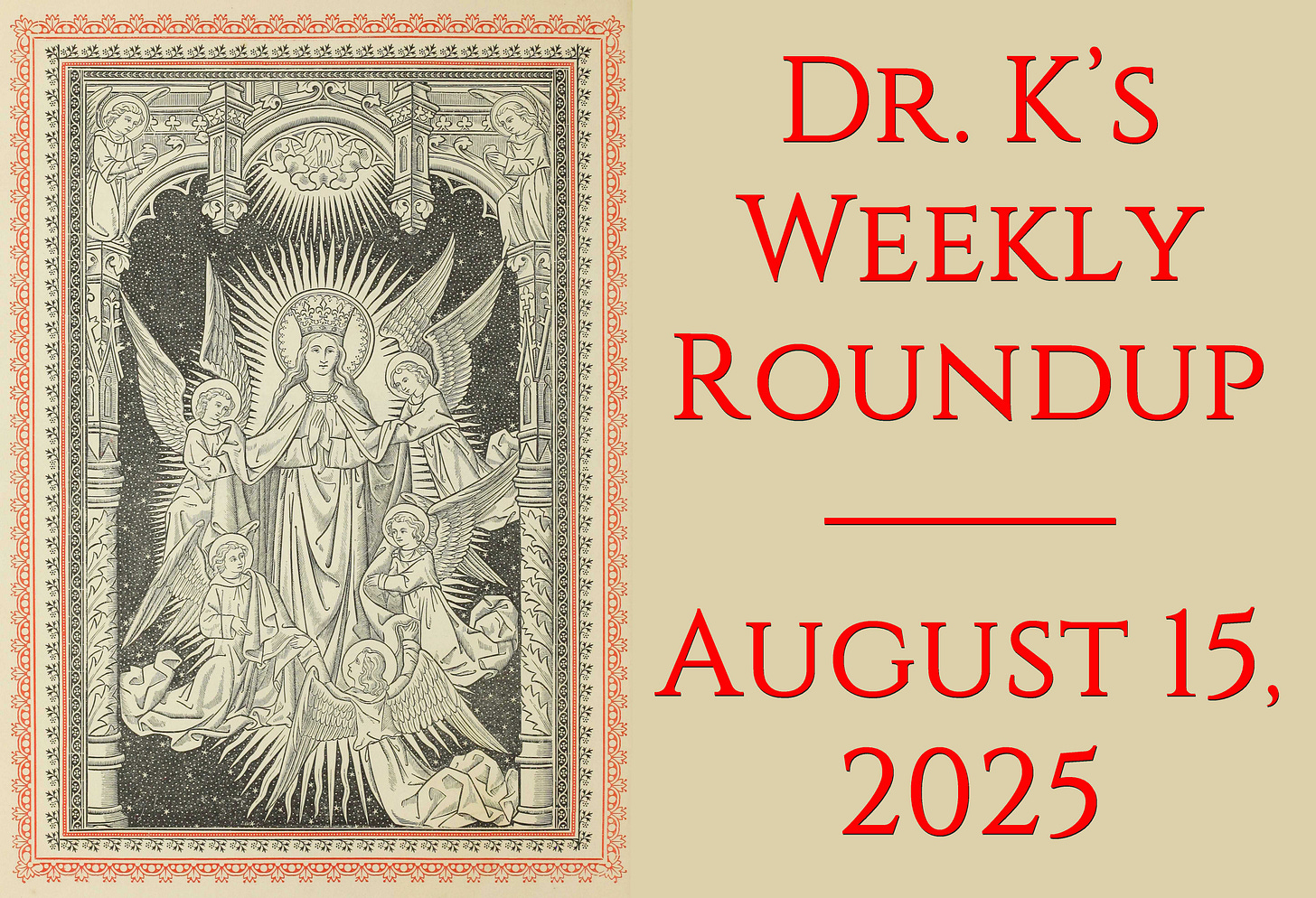Weekly Roundup, August 15, 2025
Europe in Distress; Liturgical Lessons; Newman: No Liberal or Modernist; Favorite Articles
I wish all of my readers a most blessed Feast of the Assumption of Our Lady into heaven.
Europe in Distress
I follow European news and trends closely for many reasons.
My family and I lived in Austria for seven and a half years (1998-2006) and we still keep in touch with many friends from all over the continent. We love every city, country, and church we e…
Keep reading with a 7-day free trial
Subscribe to Tradition and Sanity to keep reading this post and get 7 days of free access to the full post archives.



